
Over the past two years, Hiba teachers and pupils have braved many challenges with their mutual trust and support, which surely will become their memorable and splendid experience. With more new teachers joining the Hiba family, our founding teachers will have a positive impact on them and continue to show their strong conviction in striving for excellence. Daisy Xie, one of our founding teachers, is promoted to be Assistant Head of Primary this year. Under her guidance, we believe Primary will develop with a stead step and pupils will learn from the best of East and West. We interviewed Daisy about her educational philosophy and her expectations about the new role. Here is a recap of what we talked about.
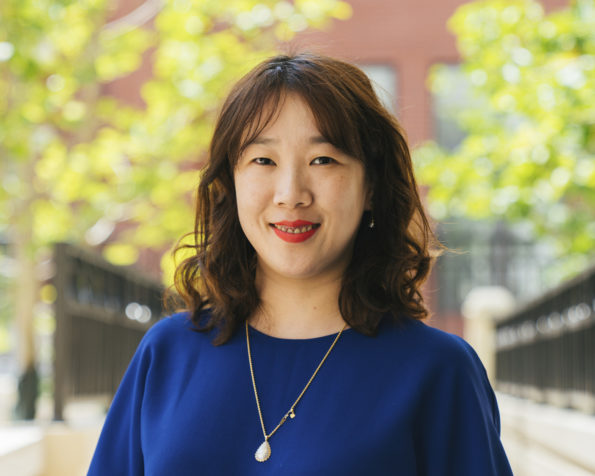
01 What is the biggest difference between your former role as Head of Chinese to your new role as Assistant Head of Primary? As the Head of Chinese department, I put my whole heart into the development of Chinese curriculum, integrating Chinese and Western teaching practices, improving Chinese teaching and its related assessment system and trying my best to pass on our traditional culture. These are the issues I frequently reflected on in the past two years. When I take on the new position, my focus will shift from Chinese subject to the development of the Primary School. This means I need to coordinate different departments to align their teaching plans, enhance their cooperation and promote the smooth communication between the school and family, all aiming to improve pupils’ academic achievement and their wellbeing.
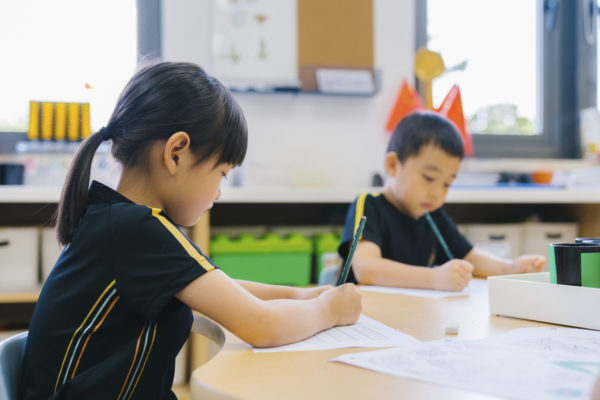
02 What will you do to assist the new Head of Primary and instil new energy into the primary with joint efforts? I feel honoured to work with Ms. Rosalie Pietsch as she has a wealth of experience in international education. We believe she will lead our Primary School to a new development stage. Although it only has been a month since she came to Hiba Academy Shanghai, I already feel her expectation and passion for the Hiba community. Throughout the entire school year, I will assist her to improve all aspects of our school and understand what Chinese parents expect for their children. We together will adhere to the educational ethos of bringing the best of the West and East to pupils, develop their inquisitive thinking and all-round aptitudes as well as combining career education with subject teaching. These are topics we will discuss later on. 03 As a management team member of Primary School, what are your major responsibilities and your priority in this year? Teachers in the Primary School have rich teaching experience in their own subject. My work will focus on promoting the balanced development of all subjects and their integration while overseeing the implementation of cooperative teaching. This demonstrates how we put holistic education into practice. Moreover, I will frequently communicate with heads of different departments to optimise our curriculum framework and make the most of the current assessment system to guide our classroom teaching. In the meanwhile, I seek to provide more cooperation opportunities for teachers regardless of which subject or grade they teach, expecting that this will break down barriers of different subjects and help pupils progress in terms of their ability, thinking pattern and core qualities.
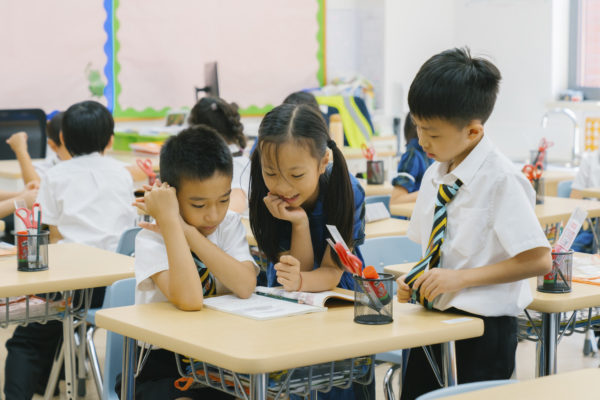
04 As the academic team of Primary School is getting larger, what will you do to build a robust Primary team which secures high-quality teaching? Hiba Shanghai is an open and inclusive community. Our teachers, who graduated from renowned universities around the world, not only understand but also practise the advanced pedagogies in their teaching. This year, with the help of Ms. Pietsch, the Head of Primary, we planned our regular session on teaching and researching and arranged trainings on professional development. Teachers are able to exchange ideas and update their specialised knowledge on these weekly sessions. They also can participate in workshops both held in and outside the school to have project-based discussion. What is more, we have applied for several subject research projects at the municipal level which will be conducted accordingly. Our teachers are pleased to bring their experience to the school, while at the same time, the Hiba community offers opportunities for teachers to improve their teaching expertise. This is a win-win situation that we all glad to see. 05 You are experienced in teaching Chinese and Chinese culture. Do you have any planning about teaching Chinese when you are on the new position? We cannot solely rely on one subject to teach pupils Chinese culture. Although learning Chinese is a basic threshold for them to understand Chinese culture, if we expect pupils to have a better understanding of Chinese culture and carry it forward with them, we should break the boundaries of disciplines and integrate them flexibly.
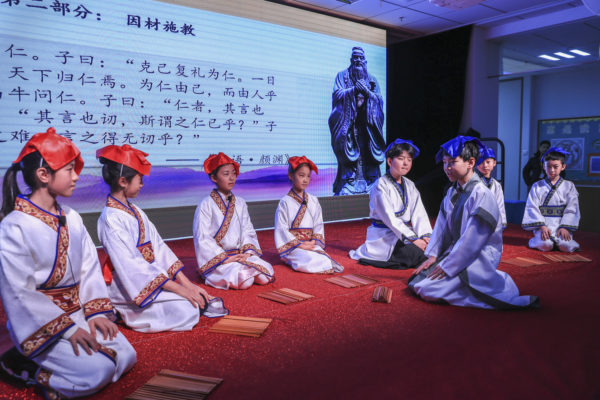
For example, the combination of performing arts and Chinese culture will produce an excellent play. Themed-based curriculum together with Chinese culture will expand pupils’ horizon, help them to use their critical thinking to consider culture conflicts and build their confidence in cross-cultural communication. 06 When it comes to transition to the school, how do you help grade 1 pupils settle into Primary School? Our unique house system and pastoral care will help pupils transition to the school life smoothly. Grade 1 pupils, as new arrivals of the Primary School, naturally receive more support and care from teachers and older pupils. For example, decoration in the classroom can ease their anxiety in a new environment; clear instruction from teachers builds their awareness of the classroom discipline; house logos seen everywhere give them a sense of group honour; strict safeguarding and duty policies ensure we know how to take care of every pupil; timely communication between family and the school makes us more consistent.

In an immersive bilingual learning environment, pupils feel confident to learn and develop here. In the coming days, they will frequently get to know the Hiba Values of respect, kindness, integrity, courage and responsibility. If they demonstrate these values, they can hang their awards on the wall of honour to highlight these special moments. 07 How will you prepare upper grades pupils for the next stage? Upper primary pupils become more mature compared with when they progressed to grade 1 and they become confident in showing their own characteristics. Nevertheless, they also experience many changes at this stage. We will pay more attention to how their psychological and mental change affect their learning and development so as to instruct them how to go through puberty. Meanwhile, we will cultivate upper primary pupils to be independent and brave enough to take on leadership roles. This helps them rise to challenges that they will encounter in the Junior High and be willing to take leadership positions. In the academic side, teachers in grades 5 and 6 hold seminars routinely to share information in which grade 5 teachers can keep track of pupils’ development and grade 6 teachers can acquaint themselves with pupils they will teach in advance. What pupils learn in upper primary and how they learn coincide with the learning of Junior High, which will help them to transition to the next stage. For example, pupils will be introduced to conceptual learning in Chinese and project-based learning. This kind of learning approach develops pupils’ ability in time management, critical thinking and public speaking. 08 How do we build a good partnership with families to help primary pupils learn and develop? At Hiba Academy Shanghai, we attach great importance to home-school partnership, as Ukrainian humanistic educator Vasyl Sukhomlynsky once said: "Only when school and family have the same belief can child develop holistically." From our point of view, frequent communication between home and school is the basis for a good partnership and mutual trust. Parents can have an in-depth understanding of our educational philosophy by participating in parents workshops held throughout the year. Multiple channels of communication ensure teachers and parents can get to know how pupils behave at home and school respectively. This requires pupils to retain their good habits even back home.
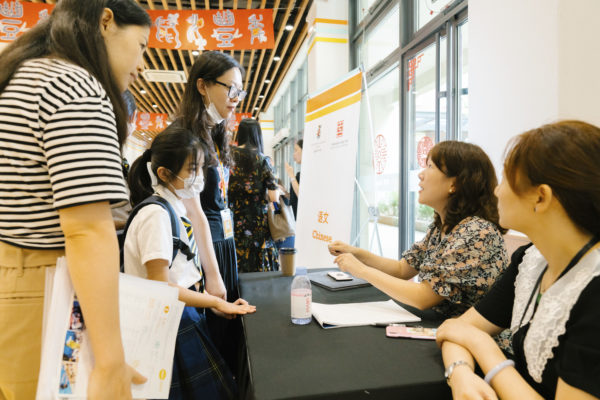
Friends of Hiba committee and parents representative act as a bridge between home and school. Parents volunteering in school activities are testimony of our excellent home-school partnership. We believe that when school and family have the same vision and goals, children will develop to be the best versions of themselves.